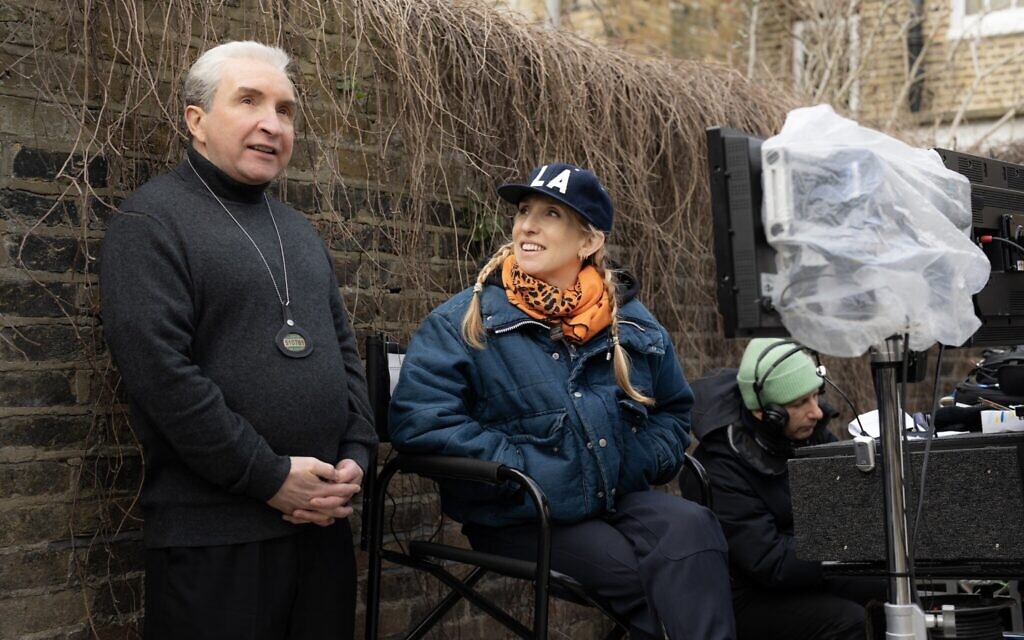INTERVIEW: Back to Amy: Eddie Marsan on playing Mitch Winehouse
Back to Black, the Amy Winehouse biopic, is out now, with Eddie Marsan playing the iconic singer’s father, Mitch. Here he discusses the emotional journey of bringing Amy’s story to the screen
Did you have any doubts about playing Mitch?
No, but because of the public narrative about him I had concerns about how Matt Greenhalgh, the writer and Sam Taylor-Johnson, the director, would portray him in the script. When I found out they were approaching me I contacted a good friend of mine who worked with Amy and experienced first-hand her relationship with her dad. He liked Mitch and described him as a loving father in an impossible position, and someone who, like all fathers, me included, make mistakes but try their best. Thankfully that’s how Matt and Sam saw it and how they wanted me to play him. I wouldn’t have agreed to take on the role if it sanitised or demonised him – that’s not how I work.
Where did you first meet Mitch and how did that meeting go?
Get The Jewish News Daily Edition by email and never miss our top stories Free Sign Up
We met in a restaurant in London. He walked in and the first thing he said to me was ‘here we go, another Stepney boy’, and we just went from there. He was very self-aware and honest about Amy, his grief at losing a child so young, and the mistakes he made. Our similar cultural references, a love of jazz and our childhoods in the East End eased the sometimes difficult discussions.
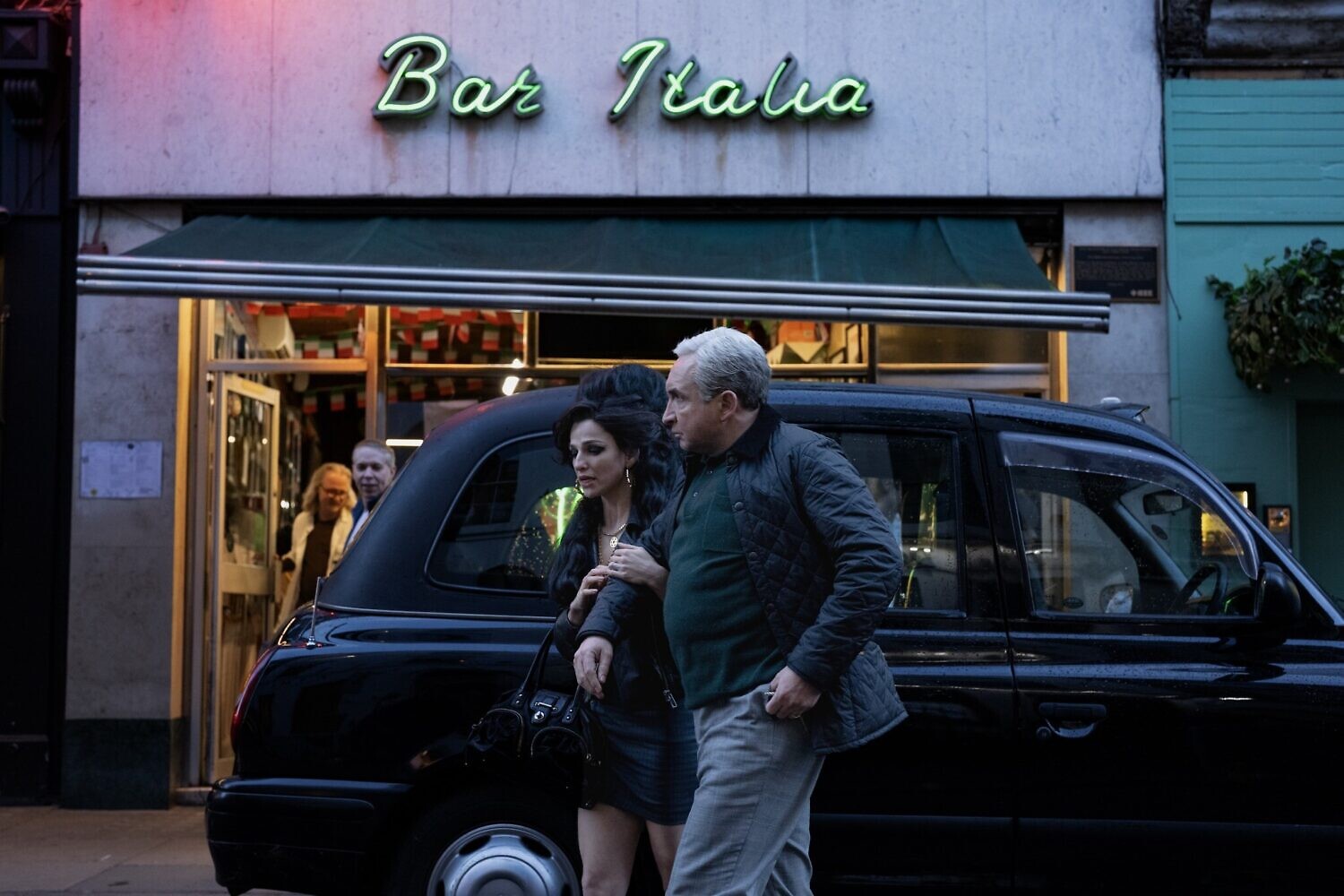
Did you spend time with Mitch to study him and read or watch documentaries in preparation?
When preparing for a role, any actor worth their salt will read and watch everything. We met up again, alone, and had a meal together, where we discussed his life, his childhood, where he went to school, his mother taking him to Ronnie Scott’s as a teenager and igniting his love of jazz, his marriage to Janice… everything.
You have spoken about the way the Winehouse family was pilloried after Amy’s death. Did that impact on how you portrayed Mitch?
It didn’t impact at all. You can’t comment on a character at the same time as portraying them. I played him as a father and drew on my own experiences, parenting four teenagers, the feeling of love, pride and the continuous worry as to if you’re doing the right thing. The film is written through Amy’s lens as it’s all there in her lyrics and, therefore, to be authentic to that, I wanted to reflect the father-daughter dynamic and it was clear their bond and connection was incredibly loving and close.
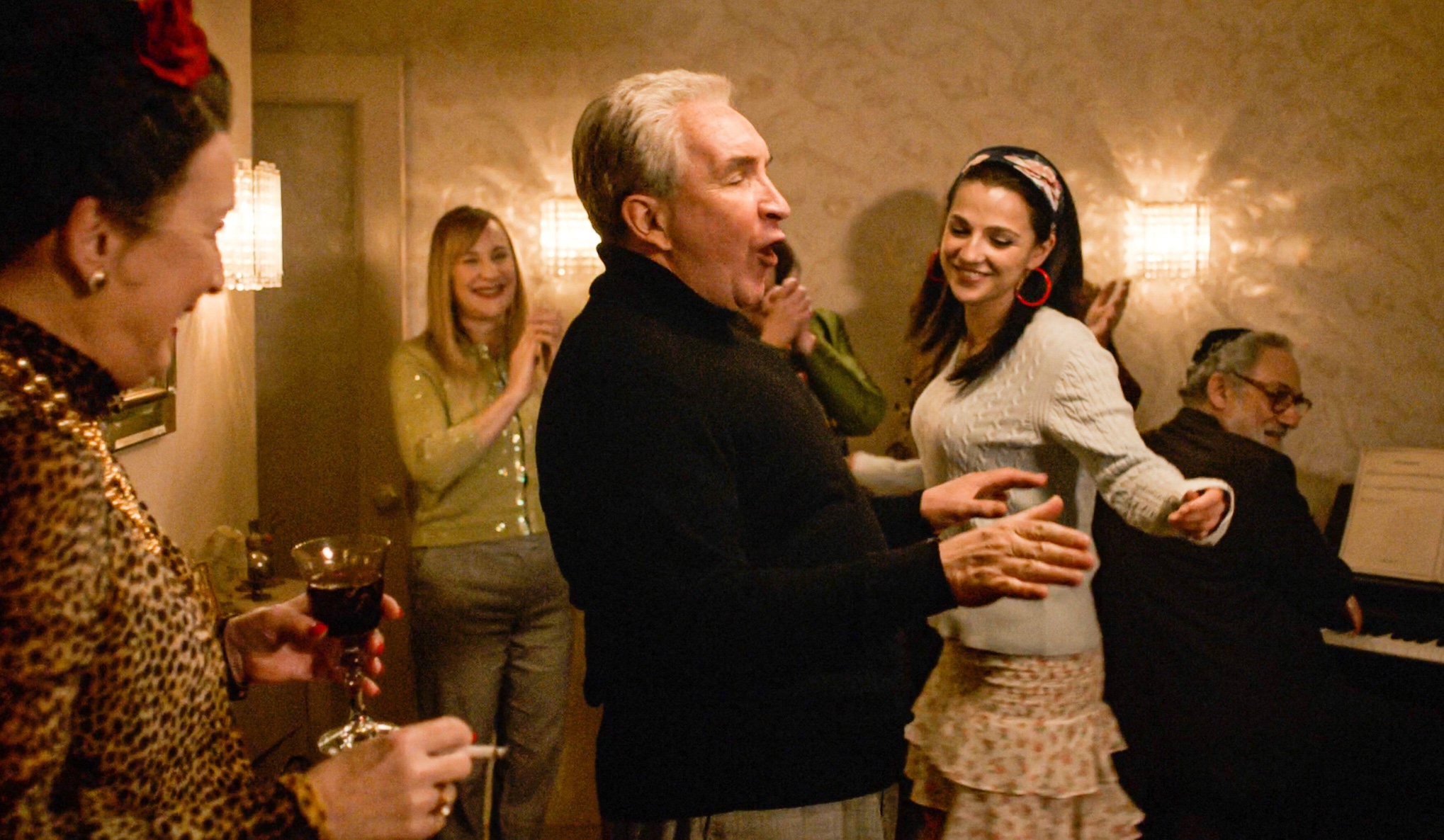
How easy was it to build a bond with Marisa Abela that replicates the real-life relationship between Mitch and Amy?
It came naturally. Acting is a collaborative art form and our job is to support each other. Marisa’s performance is amazing – I can’t wait for people to see it. But to give that kind of a performance takes incredible hard work, generosity and courage, and I was privy to all of that. Not only does Marisa sing all the songs, but every day we shot a scene, the paparazzi would take a sneaky photo – it would be online in less than an hour and the nasty comments would flood in. Marisa dug deep and carried on. Her mother, Caroline Gruber, is a brilliant actress, so the craft is in her blood. Marisa knows the job is to give an honest testimony, regardless of all the s**t that’s thrown your way. That it’s not about you, it’s about the work.
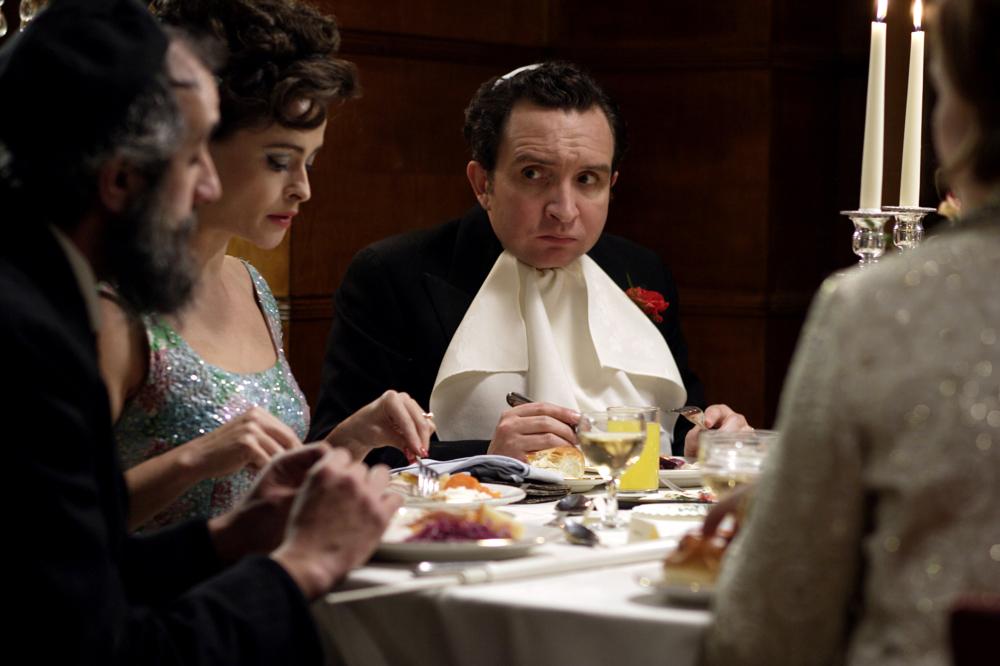
You have become the industry’s go-to Jewish father! Magnificent as Manny Rubens in the touching Sixty Six, tough and unforgiving as Bernie Monke in The Power, now Mitch Winehouse and soon Harry Epstein in the Brian Epstein biopic. How do you slip into Jewish dad mode so easily and are you comfortable there?
I feel comfortable and inspired to play anything. ‘Nothing human is alien to me’ is my motto as an actor. I don’t know why I’m cast in so many Jewish roles, but it’s predominantly Jewish film-makers who cast me, so you’ll have to ask them, and I’m sure each of them will have a different reason. I just do my best and try to avoid generalisations and caricatures.
You have bravely stood with the Jewish community in the fight against antisemitism. Is it the Jewish roles that compels you to do this or your East End history?
No, it’s got nothing to do with the roles. To be honest, while I’ve played Bernie Monke, Bob Dylan and Shimon Peres, I’ve also played Heinrich Himmler and Martin Luther – two of the worst antisemites in history. I’m an actor, it’s what I do. I’m standing in solidarity with the people I grew up with, went to school with and work with. I joined the march against antisemitism and called out the rise in both anti-Jewish and anti-Muslim hatred and I campaign for the Windrush generation because of my upbringing in a diverse East End. That is my culture, I owe it everything and I will defend it to the last.
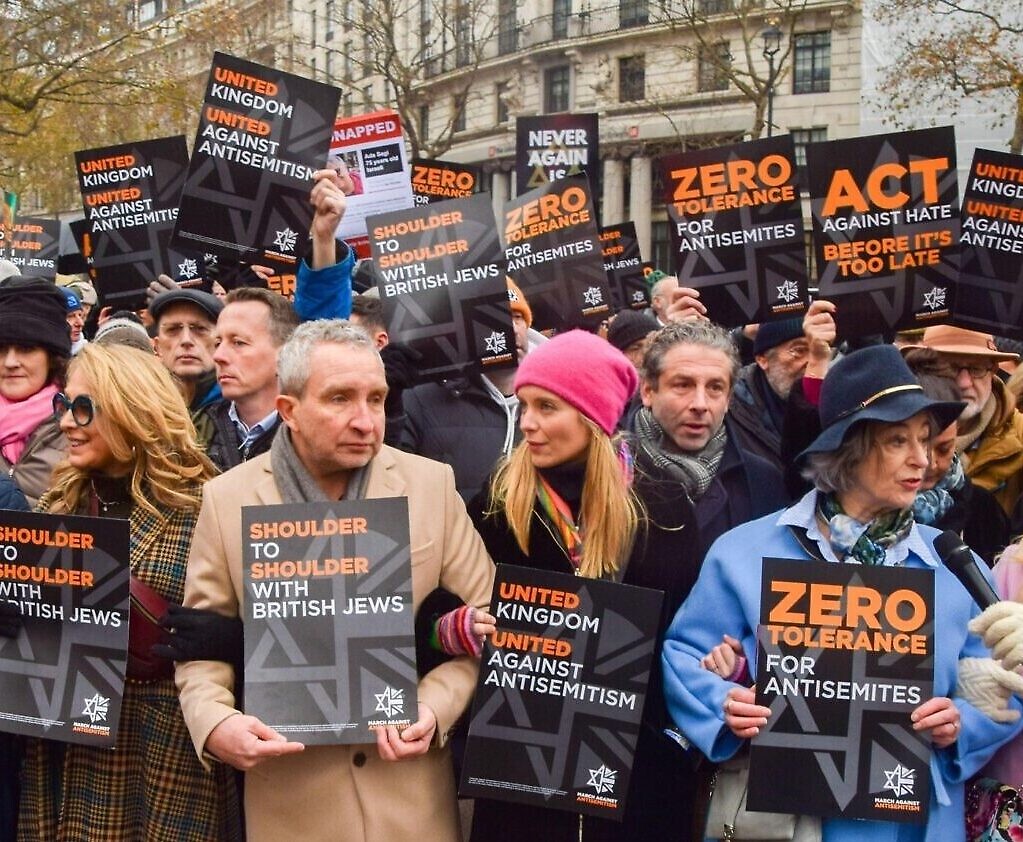
You received hate after playing a Jewish anti-fascist activist in the series Ridley Road. Are you concerned this will happen again, albeit from a different group, with your sympathetic portrayal of Mitch?
No, it comes with the job. I’m not concerned; people have a right to their opinion, but I don’t think I give a sympathetic portrayal of Mitch. I give an honest portrayal of him. I just played him as a father whose daughter was suffering from addiction at the same time as being the most famous woman in the world, who had unlimited financial resources, with every drug dealer in London trying to ply her with drugs. The reason I received such hate and bigotry after Ridley Road was because of the brilliance of Sarah Solemani’s writing. The words and phrases used by the fascists in the early 1960s bear a remarkable similarity to those used by antisemites now. Sarah shone a light on their bigotry and it challenged their self-righteousness, so they had to hit back.
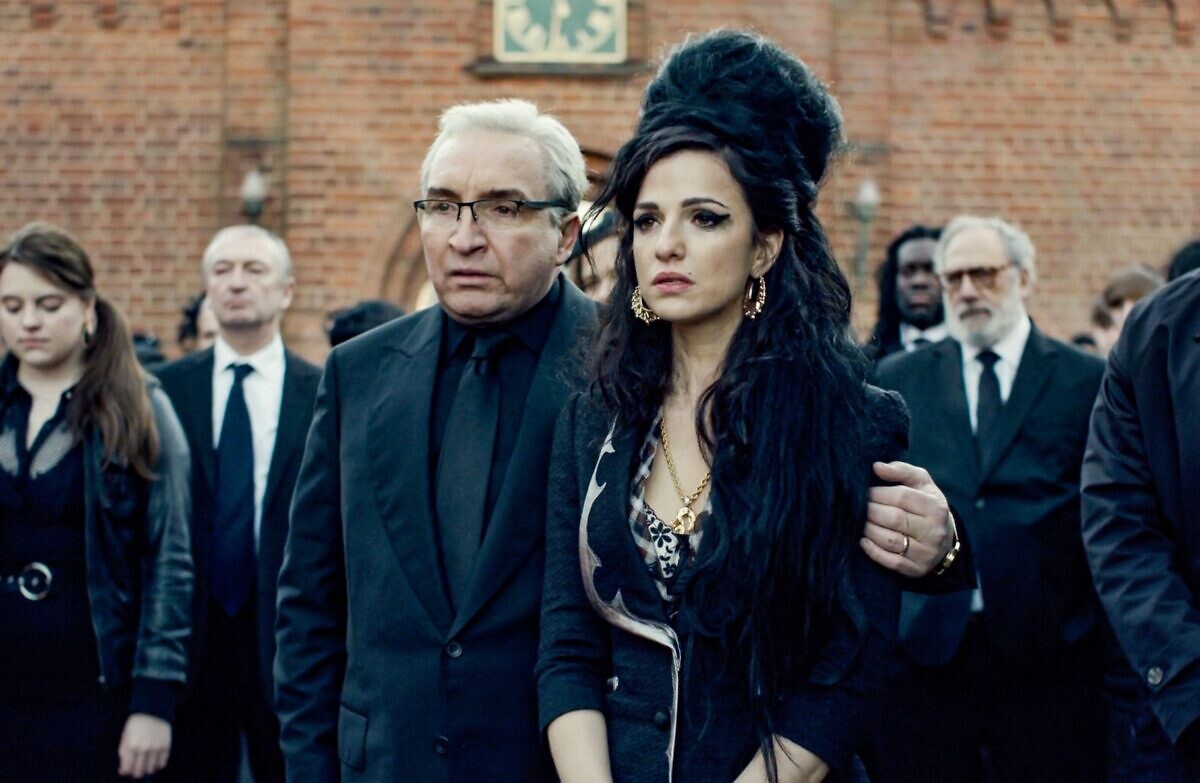
What do you want audiences to take away from Back to Black and what have you?
I want them to celebrate the brilliance of Amy, to realise how lucky we were to have her in our lives, to still hear her incredible voice every day. I also hope people gain a greater understanding of how awful, cruel and random addiction is and have more compassion for those who suffer from it. What I’ve realised making this film is that when someone like Amy dies so young, someone who touched our lives in such a profound way, there’s a collective trauma and the natural response is to try and make sense of it. We latch onto a comfortable narrative, where there’s someone to blame; it reassures us that if my daughter doesn’t meet someone like Blake, if we don’t behave the way they claim Mitch behaved, this won’t happen to us. But addiction doesn’t work like that. We all know families, good families, where one child lives a completely functional, fulfilled life and their sibling is an addict. Addiction is the villain of this film; addiction took Amy from her family, from all of us. If there is another villain of the film it’s the paparazzi. There’s a reason why recovery programmes are called Alcoholic Anonymous or Narcotics Anonymous because addiction needs to be dealt with in privacy and anonymity. Amy was never given that right; she was continually hounded, mocked and humiliated.
Finally, which Amy Winehouse song is stuck in your head?
Don’t Go to Strangers – her live duet with Paul Weller. It’s absolutely beautiful Just like Amy.

Thank you for helping to make Jewish News the leading source of news and opinion for the UK Jewish community. Today we're asking for your invaluable help to continue putting our community first in everything we do.
For as little as £5 a month you can help sustain the vital work we do in celebrating and standing up for Jewish life in Britain.
Jewish News holds our community together and keeps us connected. Like a synagogue, it’s where people turn to feel part of something bigger. It also proudly shows the rest of Britain the vibrancy and rich culture of modern Jewish life.
You can make a quick and easy one-off or monthly contribution of £5, £10, £20 or any other sum you’re comfortable with.
100% of your donation will help us continue celebrating our community, in all its dynamic diversity...
Engaging
Being a community platform means so much more than producing a newspaper and website. One of our proudest roles is media partnering with our invaluable charities to amplify the outstanding work they do to help us all.
Celebrating
There’s no shortage of oys in the world but Jewish News takes every opportunity to celebrate the joys too, through projects like Night of Heroes, 40 Under 40 and other compelling countdowns that make the community kvell with pride.
Pioneering
In the first collaboration between media outlets from different faiths, Jewish News worked with British Muslim TV and Church Times to produce a list of young activists leading the way on interfaith understanding.
Campaigning
Royal Mail issued a stamp honouring Holocaust hero Sir Nicholas Winton after a Jewish News campaign attracted more than 100,000 backers. Jewish Newsalso produces special editions of the paper highlighting pressing issues including mental health and Holocaust remembrance.
Easy access
In an age when news is readily accessible, Jewish News provides high-quality content free online and offline, removing any financial barriers to connecting people.
Voice of our community to wider society
The Jewish News team regularly appears on TV, radio and on the pages of the national press to comment on stories about the Jewish community. Easy access to the paper on the streets of London also means Jewish News provides an invaluable window into the community for the country at large.
We hope you agree all this is worth preserving.
-
By Brigit Grant
-
By Laurent Vaughan - Senior Associate (Bishop & Sewell Solicitors)
-
By Laurent Vaughan - Senior Associate (Bishop & Sewell Solicitors)
-
By Laurent Vaughan - Senior Associate (Bishop & Sewell Solicitors)
-
By Laurent Vaughan - Senior Associate (Bishop & Sewell Solicitors)


